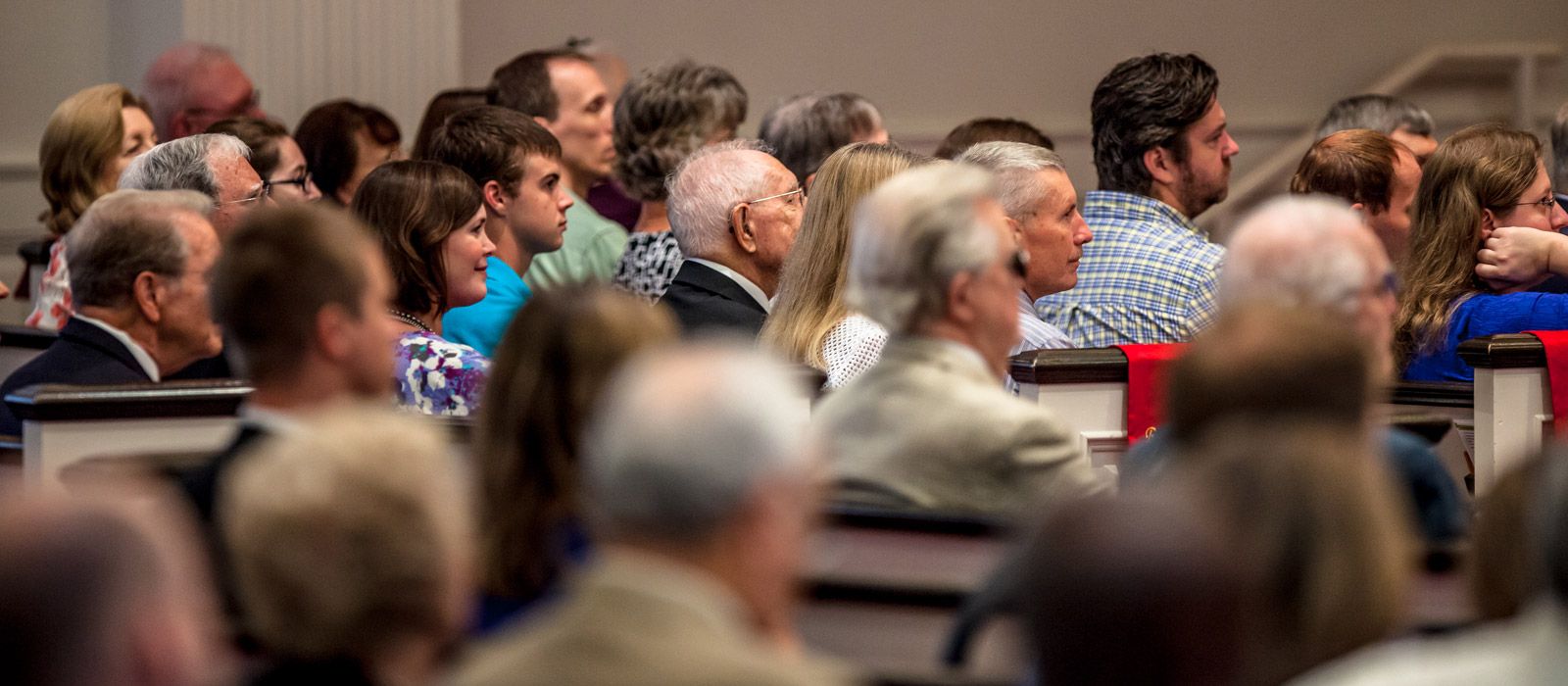Katrina 10 Years Later
Ten years ago, our church in Knoxville hosted approximately 30 evacuees from the Gulf Coast. Earlier in the week, like many other helpless Americans, we wanted to do something. Jay Hogewood, who was then pastor of University Baptist in Baton Rouge, had created a makeshift relief warehouse for evacuees in his area. I contacted him, and our church started gathering supplies to send down there. One of our church members worked with a trucking company; the local utility donated bottles of water. The news channels broadcasted the need, and the volunteers from East Tennessee sent everything they could. We thought we were finished, but the problem grew worse.
As you know by now, the neediest people were left stranded on the Gulf Coast. Many people stepped in to help publicly and privately. Former Vice President (and Tennessean) Al Gore anonymously chartered a plane at his expense to rescue people from the destruction left by Hurricane Katrina. The plane landed at McGhee-Tyson airport. Most of the evacuees had serious medical issues—from diabetes to heart conditions to disabilities; they were transported with just the shirts on their backs to the now-closed Baptist Hospital across the river from our church. One of our resourceful church members coordinated with the Red Cross. Our associate pastor called for volunteers. The Red Cross delivered cots, and the community brought food and supplies. We turned a gym into a disaster relief shelter in about 6 hours.
I was literally sitting down in Neyland Stadium for the kickoff of the Vols vs. UAB football game for the first home game of the year when my cell phone rang. Our associate pastor Jud Reasons called and said, “They’re coming.” Up until that point, we didn’t know if the shelter was really needed or would be opened. The normal shelter sites in town were closed for Labor Day weekend. When the guests arrived, an army of volunteers came too. Oncologists became clinic physicians. Accountants handed out Bibles. Students became chefs. Engineers set up a triage room. Everyone played a part.
If you’ve never been to Knoxville, Labor Day weekend is also known for a huge fireworks show called “Boomsday.” This event also happens in the backyard of the church overlooking the river. Not only were 100,000 people in Neyland Stadium but many more were coming the next night to watch fireworks. Needless to say, we had a lot of issues to address in a short amount of time. We moved a worship service, relocated Sunday School; oh, and by the way, a music minister was coming in view of a call that weekend too.
Most of us really had no idea what we were doing that weekend. No one person was able to do it all. In fact, without great church members, nothing would have happened. In a rush of adrenaline, excitement, and desire to fix a problem, something happened to us. We became available to the needs of those around us and responded. Normally, this kind of commitment is reserved for times when we travel on mission for Jesus. Instead, the mission washed ashore to the foothills of the Smoky Mountains.
The event brings back a lot of warm memories and a flood of emotions. I met some people and saw some things I’ll never forget. We received fewer guests than we initially anticipated and stayed open for about a week. We originally thought we would receive over a thousand folks and remain open for weeks. Instead, for a brief moment in time, we worshiped Sunday morning with our lips and for an entire week worshiped together with our hands, heart, and feet. The experience left an impression that will never leave. I saw a picture of what the church can be at its best. People who never came to church volunteered to help—and eventually got involved in the church. We bore witness to the power of the resurrection through disaster relief and recovery. When many people were left helpless, stranded, afraid, and angry, one group of people came together to make a difference.
Like FBC Knoxville, FBC Tallahassee is a church that has had many Katrina relief moments. These unplanned, unexpected “Kairos” times happen because we’re ready and available to the opportunities around us. We respond not because we want the credit but because this is who we are. These times remind us what our focus should be even today. We exist to glorify Christ and for the benefit of those who wash to our shores. Sometimes the people that need the Lord come via disasters; most often, they’re stranded right next door to us.
On the Sunday Night of Labor Day weekend 2005, we gathered in the parking lot with people from Biloxi, Gulfport, and New Orleans to watch fireworks. Over 25,000 other people were there as well for Boomsday. A few hours earlier, most of the folks from the Gulf Coast had been wearing a hospital gown and a pair of boxers. Now they were fully clothed, fed, warm, prayed for, and were staying at a church. They were safe. With a big smile on their face, one of our guests looked up into the night sky and said, “Look! They shot off these fireworks just for us– to welcome us to Knoxville.”

